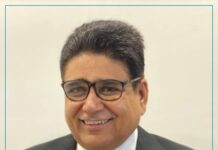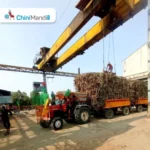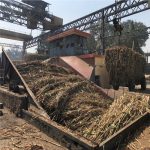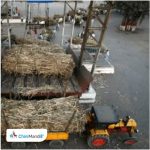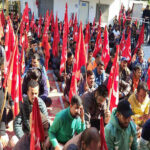Union Minister for Agriculture & Farmers Welfare and Rural Development Minister Shivraj Singh Chouhan announced that a dedicated team will be set up within the Indian Council of Agricultural Research (ICAR) for sugarcane research in the country. This team will also work on the sugarcane policy. The Minister made this announcement while addressing a national discussion on the sugarcane economy, organized by Rural Voice and the National Federation of Cooperative Sugar Factories in collaboration with ICAR.
Chouhan highlighted that the sugarcane variety 238, which has shown promising sugar content, is susceptible to red rot disease, stressing the need for continuous research to develop disease-resistant alternatives. He pointed out that managing diseases is a critical challenge as new varieties often come with new disease risks.
The Minister also addressed the issue of mono-cropping, which leads to nutrient depletion and nitrogen fixation limitations. He suggested that replacing mono-cropping with intercropping might offer solutions, but emphasized that such a shift would require thorough evaluation.
“We are aware of the challenges,” Chouhan said. “Our focus must be on boosting production and mechanization, reducing costs, and improving sugar recovery. Water use is a major concern, and under the principle of ‘per drop, more crop,’ we need strategies that lower water requirements. At the same time, we must keep in mind the financial strain on farmers, as drip irrigation systems come at a significant cost.”
The Minister also underscored the potential of bioproducts. While ethanol and molasses are already in use, Chouhan stressed the need for new value-added products to increase farmers’ incomes. Additionally, he advocated for natural farming practices to reduce the dependency on chemical fertilizers.
Chouhan acknowledged the ongoing issues within the sugar value chain, particularly delayed payments to farmers. While recognizing the financial struggles of sugar mills, he noted that farmers bear the brunt of delayed payments. He also highlighted the shortage of agricultural labor and called for training and capacity-building initiatives, as well as innovations in mechanization, to ease the burden of sugarcane harvesting.
“I urge ICAR to form a specialized team for sugarcane research, focusing on practical issues that directly benefit both farmers and the industry. Research that does not serve farmers is meaningless,” he added.
During the seminar, Dr. M.L. Jat, Director General of ICAR and Secretary of the Department of Agricultural Research and Education (DARE), outlined four key areas for future research: setting research priorities, addressing developmental challenges, resolving industry-related issues, and recommending policy measures to support the sector.
Dr. Jat emphasized the high water and fertilizer requirements of sugarcane. He pointed out that water scarcity is a growing concern, but that studies in Maharashtra’s micro-irrigation practices show promise. He also noted the inefficiency in current fertilizer use and stressed the importance of improving fertilizer efficiency for sustainable farming.
Dr. Jat further advocated for crop diversification to reduce the risks of monocropping, suggesting that integrating pulses and oilseeds with sugarcane could enhance productivity, increase farmers’ incomes, and improve sustainability.
Dr. Devendra Kumar Yadav, Deputy Director General of Crop Science at ICAR, explained that although sugarcane variety 238 had initially been well-received by farmers, it ultimately promoted monocropping. He clarified that while alternative varieties are available, they require time to be adopted, with each variety undergoing three years of testing for disease resistance, insect resistance, and yield potential. He also emphasized the importance of analyzing yield gaps for most crops and assured that the recommendations from the seminar would be carefully considered.
Dr. Rajbir Singh, DDG Extension at ICAR, chaired one of the seminar’s sessions.




